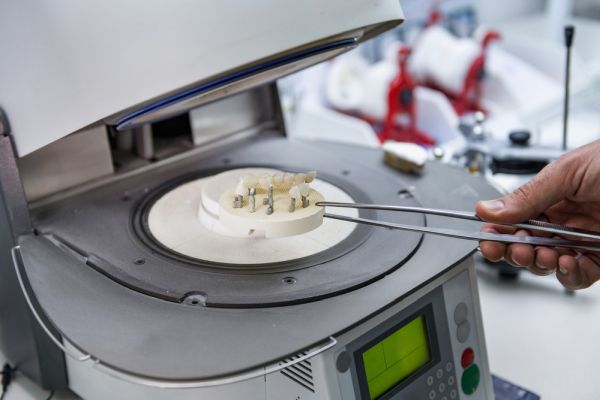What Are Dental Crowns and How Are They Used?

Dental crowns are nothing for you to be afraid of. Crowns are important restorations for your teeth and the procedure is very simple to understand. Crowns perform important functions for your oral health. Read on to find out everything you need to know about crowns.
Understanding dental crowns
Crown restorations are a common dental procedure that many dentists perform. Many people have crowns put in place to help with different kinds of tooth and mouth issues.
What are crowns?
Dental crowns are artificial restorations designed to help bring back a tooth to its natural size and shape. A dentist cements the crowns on the teeth that need repair. These common problems could include cracked teeth, teeth with severe decay or teeth that are damaged in other ways. Though crowns can sometimes extend down to the root surface, they usually replace the outer part of a person’s natural tooth.
When put in place, the crown will fully cover the part of the problem tooth that can be seen above a person’s gumline. Dental crowns are custom-crafted for each tooth to ensure a proper fit. Various materials can be used to create one, including porcelain and metal, ceramics, resin or even gold.
When to use a crown
A dentist may install a crown to help with various important functions. Crowns can protect weakened teeth, restore broken teeth and prevent cracked teeth from more severe damage. Crowns can also offer support to a tooth with a large filling.
Crowns will restore the shape, appearance and alignment of a damaged tooth. Once the dentist has securely cemented the crown in place, it is typically the only part of the tooth that a person can see. Natural-looking crowns will not stand out in a person’s mouth, blending in with other teeth.
How do crowns work?
Custom-created dental crowns cover teeth in a similar manner as a sewing thimble will cover a fingertip. Crowns encase the tooth completely, protecting what is underneath.
Constructed from resilient and durable materials, dental crowns act like natural teeth when it comes to normal chewing or biting.
Placing crowns
An anesthetic will numb the area of the tooth receiving the crown as well as the nearby tissue. The dentist will use a dental drill and an abrasive bur to remove the outer surface of the damaged tooth on all sides. This creates the necessary room for the crown to fit properly. If the tooth lacks the proper structure for a crown, the dentist will first build it up to create a solid foundation for the crown. Then, the dentist takes an impression of the tooth and sends it to a lab where the crown is created.
It can take two to three weeks for the new crown to be ready, so the dentist may place a temporary one in the meantime. When the final dental crown does arrive, the temporary will be removed. Then the new crown will be adjusted and cemented into its proper place.
Fix problem teeth with dental crowns
Dental crowns may not be a one-size-fits-all option for all tooth issues, but they could be a solution for your dental problems. If you believe you might need a crown or you are having tooth problems, talk to a dentist about how a crown might help you achieve the smile you desire.
Request an appointment here: https://www.roderickgarciadmd.com or call Roderick A. Garcia, DMD PC at (505) 634-5029 for an appointment in our Albuquerque office.
Check out what others are saying about our services on Yelp: Read our Yelp reviews.
Recent Posts
Dental care plays a pivotal role in maintaining a healthy and beautiful smile. General dentists provide various services to help individuals achieve optimal oral health. This blog will explore the most commonly asked questions about general dentists and explain their diverse services.General dentistry is a type of dental care focused on preventing, diagnosing, and treating…
General dentists are the professionals individuals see for preventative dental care and their biannual checkups. However, they can also help with sudden dental needs, such as treating tooth pain or repairing broken teeth. Let us look at the causes of broken teeth, their types, and how we can help.There are various types of broken teeth,…
Implant dentistry uses dental implants to serve as the support for replacement teeth. The process involves a minor surgical procedure to place the implants. Although the risks are minimal, it can take some time for the mouth to fully heal and for the dental implants to fuse together with the jawbone after the implant dentistry…
Whether you have not visited the dentist in a long time, have never been, or are simply switching general dentists, it is normal to have questions on your mind. Patients often want to ask about their current oral health, such as whether they need to be worried about cavities or persistent tooth sensitivity. They may…


